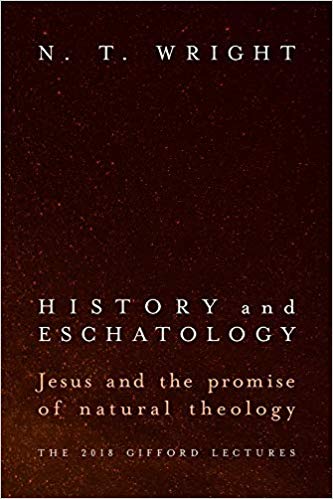The notion, as Tom says, of a God who periodically intervenes and interrupts the natural processes, that it is supposed he set up in the first place, is problematic. Intervention implies regular absence, but the God of the Bible is said to be, among other things omnipresent and as Jesus was to say ‘he is always working’. So the modern notion of God as an absentee landlord, simply isn’t a picture of God the Bible agrees with. There is something fundamentally wrong with the natural vs. supernatural distinction if by that one means a world of pure natural causation which God occasionally interrupts. This attempt to marginalize God, is said in the second main chapter to parallel the attempt to marginalize Jesus and the Gospels in the discussion of what is real and how the world works. Wright puts it this way “The challenge of Reimarus (that Jesus was a failed Jewish revolutionary) or of Schweitzer (that Jesus was a failed end of the world visionary) though interestingly incompatible. were enough to generate the negative assured result that the Gospels had got it wrong. Jesus was not after all what he had been made out to be.” (p.45). What follows in this chapter is a detailed deconstruction of these sorts of notions about Jesus and the Gospels, including a demonstration that Jesus did NOT set a time table for the end of all things, nor for that matter was Jesus a failed (non-violent?) revolutionary. There is no angst in the NT about a ‘delay’ in the return of Christ, because delay implies at date certain which has been postponed, but there is no date setting for the parousia in the NT. The only dating setting is about how the Temple centered world of early Judaism was going to be dismantled within a biblical generation— namely 40 years. And that is exactly what happened in 70 A.D., 40 years after the death of Jesus. “the idea of the literal and imminent ‘end of the world’ as a central belief of first-century Jews, including Jesus and his early followers, is a modern myth.” (p. 47) Just so. We should have exorcised the ghost of Schweitzer from NT studies a long time ago (see my Jesus, Paul, and the End of the World). None of the NT is predicting the end of the space-time continuum. Indeed, as Wright stresses what it is predicting is the transformation of the mundane realm into the new creation, thus ending the present state of affairs in the world (p.57).
In other words, Jesus was not a false prophet and Schweitzer was wrong… as was Bultmann. Bultmann comes in for some heavy criticism in this chapter, and rightly so. Among other things he had not done any serious study of the passing down of oral traditions in early Judaism, nor any of the interesting memory studies now available (see R. Bauckham, Jesus and the Eyewitnesses, and also my colleague C. Keener, Christobiographies). On p. 63 there is a trenchant critique of Bultmann’s near total failure to engage the literature of early Judaism when trying to evaluate Jesus and Paul and the NT, resorting to caricatures found in Strack-Billerbeck about works righteousness etc. “He was continuously engaged in an attempt to find a…genealogy of early Christian ideas in the non-Jewish world. This led him from his early interest in mystery religions to his later heavy (and completely unhistorical investment in Gonosticism. Neither worked as real history.” (p. 63). In short, Schweitzer and his disciples (who still exist) and Bultmann and his disciples (including oddly the mythicists who want to maintain that Christianity developed out of some sort of Egyptian Gnostic combo) have failed to engage with the real Jewish character of Jesus and his ministry, not mention the Jewish character of Paul and his ministry. Thus endeth the first movement of the Wright symphony.













